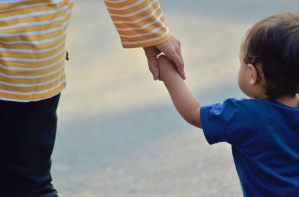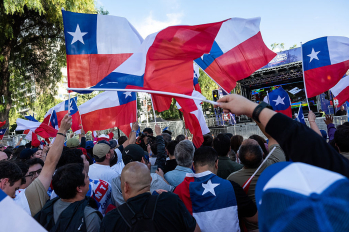
New Zealand has temporarily blocked overseas adoptions of its children after revelations that some convicted sex offenders were able to adopt, prompting swift government action and strong backing from Christian organizations and child protection advocates who say reform is long overdue.
Lawmakers are speedily progressing an Adoption Amendment bill through parliament to deter overseas adoptions under current citizenship and immigration channels, reports RNZ.
It follows news announced on Sept. 16 by the government that Section 17 of the Adoption Act is urgently suspended, following reports of children suffering exploitation after international adoptions.
The NZ Ministry of Justice confirmed the government’s position in a website announcement.
“The Government is suspending the recognition of unsafe international adoptions under the Adoption Act 1955 to protect children and young people from potential harm,” wrote the Ministry of Justice update.
“The Adoption Amendment Bill has been introduced to Parliament under urgency. If passed, the Bill will, immediately and temporarily suspend New Zealand’s recognition of unsafe overseas adoptions for citizenship and immigration purposes.”
The Government is making these changes to strengthen New Zealand’s international adoption laws, which have not provided sufficient safeguards for children and young people, according to the Ministry of Justice.
“While most children adopted through international channels are adopted into loving families, some children and young people have been adopted into unsafe family environments and then subjected to neglect, exploitation or abuse.”
The update added that the law change would temporarily suspend the recognition of international adoptions under section 17 of the Adoption Act 1955 (the Act) by New Zealand citizens and residents for citizenship and immigration purposes.
It will also restrict the ability of the Family Court to grant adoptions where the adoptive parent or child are overseas under section 3 of the Act, added the Ministry of Justice. The suspension will end in July 2027 pending any repeal or replacement by other laws. Some exceptions to the amendment would apply with some countries exempt and no effect on adoptions made via the Hague Convention intercountry adoption process.
“The Ministers of Immigration and Internal Affairs will retain their discretion to grant exemptions for citizenship and immigration purposes based on individual family circumstances,” the Ministry of Justice added.
“Judges will retain some discretion to grant adoption orders where the applicants and child are ordinarily resident overseas where exceptional circumstances apply, despite the change to their jurisdiction to grant adoption orders.”
The Family Court would continue to make adoption orders to recognise international surrogacy arrangements.
ECPAT Child Alert Trust (ECPAT NZ), a children’s rights organization working to end trafficking and sexual exploitation, welcomed the government’s action but called for careful, long-term reform.
“Anti-trafficking organisations have long advocated for reform of Section 17. It is outdated and inadequate for safeguarding children, and the loopholes it contains have left children vulnerable to trafficking and exploitation,” the group wrote in a LinkedIn post.
ECPAT NZ National Director Eleanor Parkes said closing pathways for child trafficking is essential but stressed the importance of preserving lawful, child-centered options for genuine family-based care, particularly in Pacific contexts. “Reforming Section 17 is necessary to close loopholes that enable trafficking, but should not bluntly remove legal pathways that families rely on,” she wrote.
Speaking to RNZ, Parkes said there had been little urgency in tackling these risks. “It is really good that it’s on the radar now, but hopefully the temporary ban will not be in place for long, as Section 17 is also used as a migration pathway for thousands of Pacific families who need it for health, education opportunities, and family support.”
Claire Gray, Head of Advocacy and Church Engagement for Tearfund New Zealand, told RNZ the change was welcome but voiced concern that genuine kinship adoptions could be affected. “If the government is using urgency to suspend Section 17, I hope they will act with similar urgency to find a good long-term solution,” she said.
The Salvation Army also endorsed the suspension, calling it “a vital step to protect children and young people from harm and close legal gaps that could allow convicted abusers to adopt from overseas.” In a LinkedIn post, the organization added: “Every child deserves a safe, loving home.”





